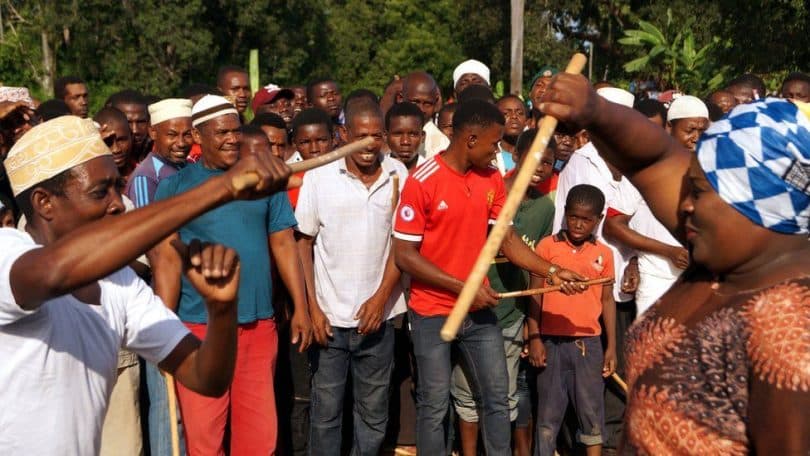Pemba, part of the Tanzanian archipelago of Zanzibar, recently held a week-long festival that revealed cultural influences dating back to the 16th Century when Portugal colonised the Spice Islands, writes Catherine Tilke.

One of the highlights of the Pemba Bonanza Festival is “the kirumbizi”, a dance-cum-martial art, which has its origins in guerrilla training against Portuguese rule.
Portugal colonised parts of the East African coast in the early 1500s – and Zanzibar remained part of its empire for about 200 years.
Khamis Ali Juma, from the Pemba museum, says Pujini village – where the festival was mainly held – was one of the first areas to be settled by the Portuguese.
Women also take part in kirumbizi fights, which involve the use of batons with musicians accompanying the contestants.

Shoka Hamad, one of the event organisers, says that the game is a battle of strength and endurance.
“When you step into the ring, you take on challengers until you feel tired – the winner is the person who shows the most endurance,” he says.
“The aim isn’t to hit or hurt your opponent, but show off your speed and agility. It’s possible that players might get hit, but this isn’t the objective of the dance.”
Bulls also feature prominently in the festival.

Bullfighting was introduced by the Portuguese, but it differs from the Spanish version as the aim is not to kill the animal, but to tire it out and entertain the crowd.
There is a belief that the spectacle brings rain and a good “mpunga” (rice) harvest, and so traditionally bullfights are held at times of drought.
There has also been a romantic element to bullfights, with young women encouraging their lovers to take part to prove their bravery – although this happens less so these days.

A woman would choose a new kanga (a colourful cloth usually wrapped around the waist) for the fight and sit on a platform next to the arena to watch.
If her beau got through the fight unscathed, she would give him her kanga to keep as a trophy.







